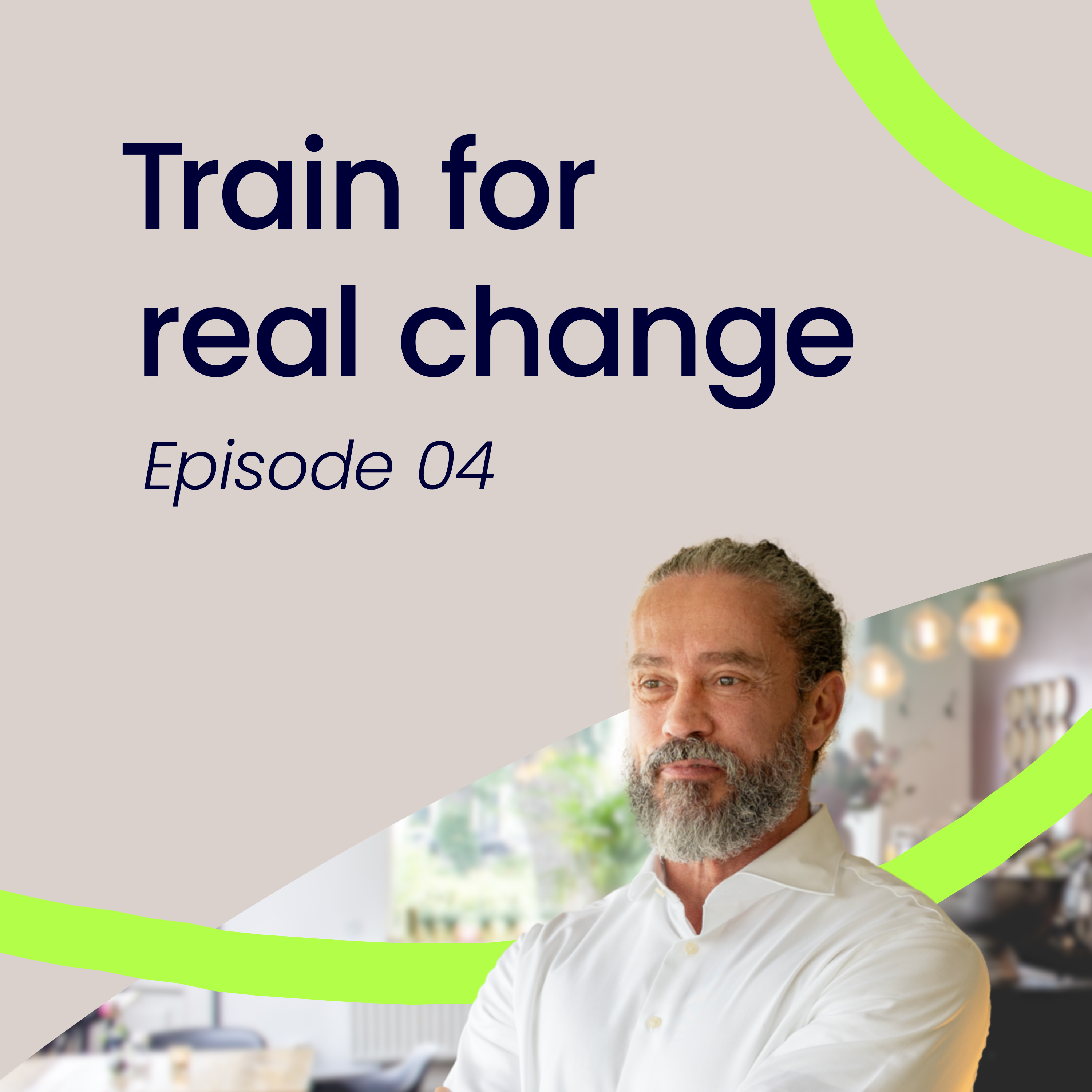Roy's Training Improvement Café

Roy's Training Improvement Café
Podcast Description
How do people really learn? And what can you as a training expert learn from that to keep improving our training? That's what Roy de Vries, Learning Innovator at aNewSpring explores in Roy's Training Improvement Café.
Every 6 weeks he sits down with learning luminaries to go in depth and get practical on topics like workplace application & transfer effectiveness, goals & objectives, relevance & motivation, opportunity to learn and how to turn training into habits.
Podcast Insights
Content Themes
The podcast focuses on key themes in learning and development, such as transfer effectiveness, relevance in training, and fostering behavioral change, with episodes exploring topics like the 12 levers of transfer effectiveness and the importance of managerial involvement in training.

How do people really learn? And what can you as a training expert learn from that to keep improving our training? That’s what Roy de Vries, Learning Innovator at aNewSpring explores in Roy’s Training Improvement Café.
Every 6 weeks he sits down with learning luminaries to go in depth and get practical on topics like workplace application & transfer effectiveness, goals & objectives, relevance & motivation, opportunity to learn and how to turn training into habits.
Episode 04 – Dirk Bannenberg on Training for Real Change
In this episode of the Training Improvement Café, Roy sits down with Dirk Bannenberg, co-founder of Nobi Learning and a seasoned trainer who’s worked with some of the biggest training providers in The Netherlands. Together, they explore how to turn training from a one-off event into a catalyst for lasting behaviour change.
💡 Spoiler alert: Real change starts before the training day…and continues long after.
About Dirk
Dirk Bannenberg is co-founder of Nobi Learning and an experienced trainer with a background in teaching, corporate training, and change management. Passionate about making training meaningful, he combines adult learning, leadership, and change management principles to help organisations achieve lasting behavioural change.
What you'll learn in this episode
- Why friction and discomfort in training can actually be a good sign
- How to uncover the “question behind the question” when clients ask for training
- Practical nudges that make behaviour change stick (from bathroom stickers to handwritten notes)
- Why training is more like a *campaign* than a one-day event
- How to keep participants motivated long after the training ends
- The power of the ADKAR change model (Awareness, Desire, Knowledge, Ability, Reinforcement)
- Why managerial support and feedback are non-negotiable for real transfer
- What Dirk learned from change thinker Thijs Homan about culture and “petri dishes”
Quick tips to apply right away
- Add small nudges before and after training (emails, reminders, stickers, handwritten notes).
- Frame training as a *campaign:* build anticipation, involvement, and follow-up.
- Ask participants: *“When will this day be a success for you?”* and use their answers.
- Use the “Better Not” exercise to surface resistance to new behaviours.
- Don’t shy away from feedback when attempts at new behaviour fail. It fuels growth.
Episode highlights
[00:01:00] – Why intrinsic motivation is non-negotiable for real behaviour change.
[00:04:59] – Uncovering the real learning need behind client requests.
[00:08:01] – The challenge of involving managers and starting with nudges.
[00:10:50] – From bathroom stickers to pre-training mail packages: creative nudges that stick.
[00:14:45] – The “Better Not” exercise to surface resistance and spark reflection.
[00:16:37] – Why managers must give feedback—even when it feels uncomfortable.
[00:20:02] – Designing impactful learning experiences on limited budgets.
[00:22:04] – Applying the ADKAR change model to training.
[00:25:32] – Why reinforcement at 2 days, 2 weeks, 2 months really matters.
[00:26:00] – Petri dishes of meaning: how real change happens at the coffee machine.
Resources & inspiration mentioned
Thijs Homan (organisational culture)
💬 We’d love your feedback!
What did you think of the episode? Share your thoughts with Roy or Dirk via LinkedIn.
📣 Don’t forget to subscribe, leave a review, and share this episode with fellow L&D pros who care about making learning stick.

Disclaimer
This podcast’s information is provided for general reference and was obtained from publicly accessible sources. The Podcast Collaborative neither produces nor verifies the content, accuracy, or suitability of this podcast. Views and opinions belong solely to the podcast creators and guests.
For a complete disclaimer, please see our Full Disclaimer on the archive page. The Podcast Collaborative bears no responsibility for the podcast’s themes, language, or overall content. Listener discretion is advised. Read our Terms of Use and Privacy Policy for more details.